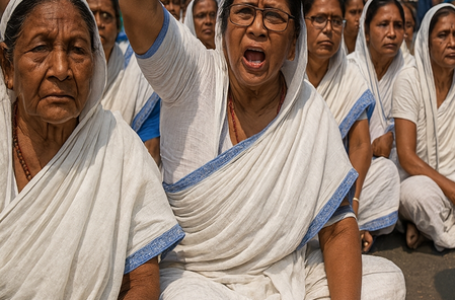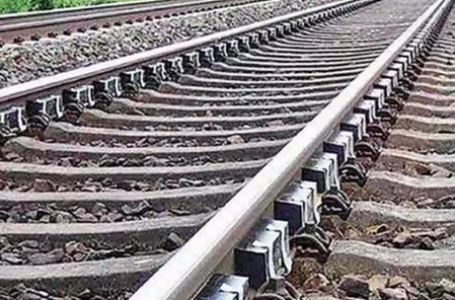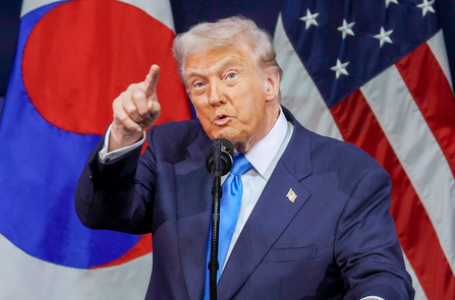
New Delhi/Stockholm: A report by the Stockholm Centre for South Asian and Indo-Pacific Affairs (SCSA‑IPA) at the Institute for Security and Development Policy (ISDP), has urged governments, research institutions, and civil society to place the Tibetan Plateau at the core of international climate policy and has come down heavily on China’s state‑centric model of infrastructure expansion, militarisation, and resource extraction, which it states has transformed one of the world’s most fragile environments into a zone of extreme ecological stress.
Ahead of the UN’s climate change conference COP30 in November in Brazil, the report states that Tibet must no longer remain the blind spot of global environmental governance as the crisis unfolding on the ‘Roof of the World’ is already shaping the future of water, food, and energy security across the Indo‑Pacific and beyond.
The centre’s new Stockholm Paper titled ‘Wither Tibet in the Climate Crisis Agenda?’ brings together more than 20 international experts to examine the Tibetan Plateau’s accelerating ecological breakdown and its far‑reaching implications for Asia’s water security, regional stability, and global climate governance.
The study warns that the Tibetan Plateau, often referred to as the ‘Third Pole’, is warming at more than twice the global average.
Its glaciers are retreating, permafrost is thawing, and grasslands are degrading, threatening the delicate water systems that sustain nearly two billion people across South and Southeast Asia.
Despite this planetary importance, Tibet remains largely absent from international climate diplomacy, including the UN Framework Convention on Climate Change (UNFCCC) and successive COP negotiations.
Slamming Beijing, the Stockholm Paper highlights that the ecological crisis in Tibet is inseparable from governance and development choices made by China.
It states that China’s state‑centric model of infrastructure expansion, militarisation, and resource extraction has transformed one of the world’s most fragile environments into a zone of extreme ecological stress.
Massive construction of highways, railways, airports, and hydropower dams, many of them dual‑use for civilian and military purposes, has disrupted permafrost layers, fragmented alpine ecosystems, and displaced local populations.
The report documents how Beijing’s vision of “ecological civilization” masks a pattern of environmental degradation, information opacity, and limited accountability.
Military‑driven construction and high‑altitude exercises are intensifying pressure on already unstable landscapes, while the secrecy surrounding environmental data prevents meaningful global assessment.
One of the paper’s most urgent concerns is the hydropower expansion on the Yarlung Tsangpo (Tibetan name for the upper course of the Brahmaputra).
The proposed Medog mega‑dam, estimated at over $160 billion, symbolises the ambition to convert Tibet into a hydropower superbase. Yet experts warn of heightened risks of seismic disturbance, landslides, and irreversible damage to downstream ecosystems in India and Bangladesh.
The absence of transparent impact assessments or data‑sharing mechanisms amplifies the fear that water could become an instrument of geopolitical leverage.
Also, the exploitation of critical raw materials such as lithium, copper, and Rare Earth elements has turned Tibet into a hub of strategic resource extraction. These materials are vital for global green‑energy transitions, yet their extraction in Tibet occurs with minimal environmental regulation and exclusion of local voices.
The Stockholm Paper describes this as “extractive colonialism”, a process in which the costs of global sustainability are borne by one of the planet’s most vulnerable ecosystems.
The resulting pollution, deforestation, and cultural displacement undermines both environmental justice and human security. The human dimension of Tibet’s transformation is equally severe.
Since 2000, close to one million Tibetans have been forcibly relocated under programs justified as ecological protection or poverty alleviation.
Many have been resettled multiple times, often without fair compensation or sustainable livelihoods. These relocations, together with demographic engineering and assimilationist education policies, erode cultural identity and weaken the traditional stewardship that has preserved Tibet’s high‑altitude ecology for centuries.
When local communities are removed from their lands, centuries of ecological knowledge are lost with them. Despite Tibet’s decisive role in regulating Asia’s water and weather systems, global responses remain muted.
Political sensitivities surrounding Chinese sovereignty have constrained international dialogue even as environmental thresholds are being crossed.
The Stockholm Paper calls for Tibet to be treated as a frontline of the global climate emergency, comparable in urgency to the Arctic or low‑lying island states. The plateau’s stability is essential to monsoon patterns, biodiversity corridors, and continental climate regulation.
To address these challenges, the publication presents a 10‑Point Framework for Global Action designed to embed Tibet within international climate cooperation.
The framework proposes, among other issues, establishing transparent, independent monitoring systems using satellite and hydrological data under UN or multilateral oversight; developing formal transboundary water‑governance mechanisms, including a potential Brahmaputra Basin Commission; and strengthening climate accountability by tying green finance and trade to strict environmental and social safeguards.
Collectively, these recommendations aim to build transparency, accountability, and regional collaboration.
The Stockholm Paper stresses that protecting Tibet is not a political act but an ecological imperative that transcends national borders. Its degradation threatens Asia’s hydrological balance, undermines global carbon stability, and jeopardizes the livelihoods of nearly one‑third of humanity.
IANS


















